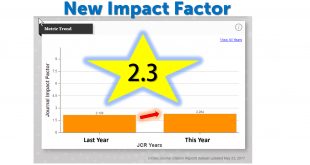Many people know that the intense and traumatic experiences soldiers face can result in posttraumatic stress disorder (PTSD)—as can civilian traumas, such as assaults or car crashes. However, many people may not realize that caring for traumatically injured patients can have the same psychological effects as the trauma itself. This …
Read More »Creating state of the art, next-generation Virtual Reality exposure therapies for anxiety disorders using consumer hardware platforms: design considerations and future directions
Anxiety disorders are common conditions that can be treated effectively with exposure techniques, a key component of cognitive behavior therapy. Dissemination of this treatment is however limited by both patient and therapist factors. Among individuals with specific phobia, for example, only half will ever seek treatment and for those who …
Read More »Therapeutic response to Cognitive Processing Therapy in White and Black female veterans with military sexual trauma-related PTSD
It is estimated that nearly one in four women will experience sexual trauma during their military service. This experience can have profound and lasting consequences, with one of the most commonly reported being posttraumatic stress disorder (PTSD). To help these women veterans, researchers have identified and studied effective treatments, with …
Read More »Efficacy of guided self-help behavioural activation and physical activity for depression: a randomized controlled trial
In North America, one in five individuals will suffer from depression at one point in their lives, and of those who do, less than 40% will seek treatment. In an effort to increase access to services, low-intensity interventions for depression, involving minimal cost and time-investment, have emerged. Two such interventions, …
Read More »Association Splitting of the Sexual Orientation-OCD-Relevant Semantic Network
Symptoms of obsessive-compulsive disorder (OCD) can manifest in various ways. One fascinating but understudied form of OCD is sexual orientation-OCD (SO-OCD). Individuals with SO-OCD experience obsessions and fears about their sexual orientation changing against their will. In response to their obsessions, individuals with SO-OCD may perform compulsive rituals that include …
Read More »The latent structure of social anxiety disorder and the performance only specifier: a taxometric analysis
Social anxiety refers to fears of social interaction and/or performance situations. When social anxiety is accompanied by significant distress or impairment in one’s social life, work, or education, an individual is said to “have” Social Anxiety Disorder (SAD). Although social anxiety is a ubiquitous phenomenon, the current psychiatric diagnostic system …
Read More »The interaction of distress tolerance and intolerance of uncertainty in the prediction of symptom reduction across CBT for social anxiety disorder
Cognitive-behavioural therapy (CBT) for anxiety disorders typically involves clients confronting the anxiety-inducing objects and situations they would typically wish to avoid. Through repeated exposure to anxiety, clients increasingly learn to question, review and correct their anxious appraisals and beliefs and gradually experience less anxiety over time. However, certain individual characteristics …
Read More »Cognitive behavioural therapy for suicidal ideation and behavior. Face to face and e-health treatments
The World Health Organization reports that close to 800,000 people die due to suicide every year (1). E-health resources allow people to access mental health information and resources at any time and from any place – something which is particularly important in rural and remote areas where access to services …
Read More »CBT:s new impact factor for 2017 (spoiler: it increased!)
The 2017 journal impact factors have now been released. Cognitive behaviour therapy increased its impact factor from 2.13 to 2.26. The number is based on 2264 (vs. 2129) citations made to papers published in the journal in the previous 2 years. Check the latest impact factors for other journals at …
Read More »Cognitive behavioral therapy in practice: therapist perceptions of techniques, outcome measures, practitioner qualifications, and relation to research
Cognitive behavioral therapy (CBT) is a psychological treatment that has a strong scientific support of effectiveness for several psychiatric disorders, primarily anxiety disorders. However, at present there is no overall agreement on what counts as ‘CBT’. One reason is that CBT is commonly perceived as including a broad range of …
Read More » Cognitive Behaviour Therapy A peer reviewed, multidisciplinary journal devoted to the application of behavioural and cognitive sciences to clinical psychology and psychotherapy.
Cognitive Behaviour Therapy A peer reviewed, multidisciplinary journal devoted to the application of behavioural and cognitive sciences to clinical psychology and psychotherapy.









